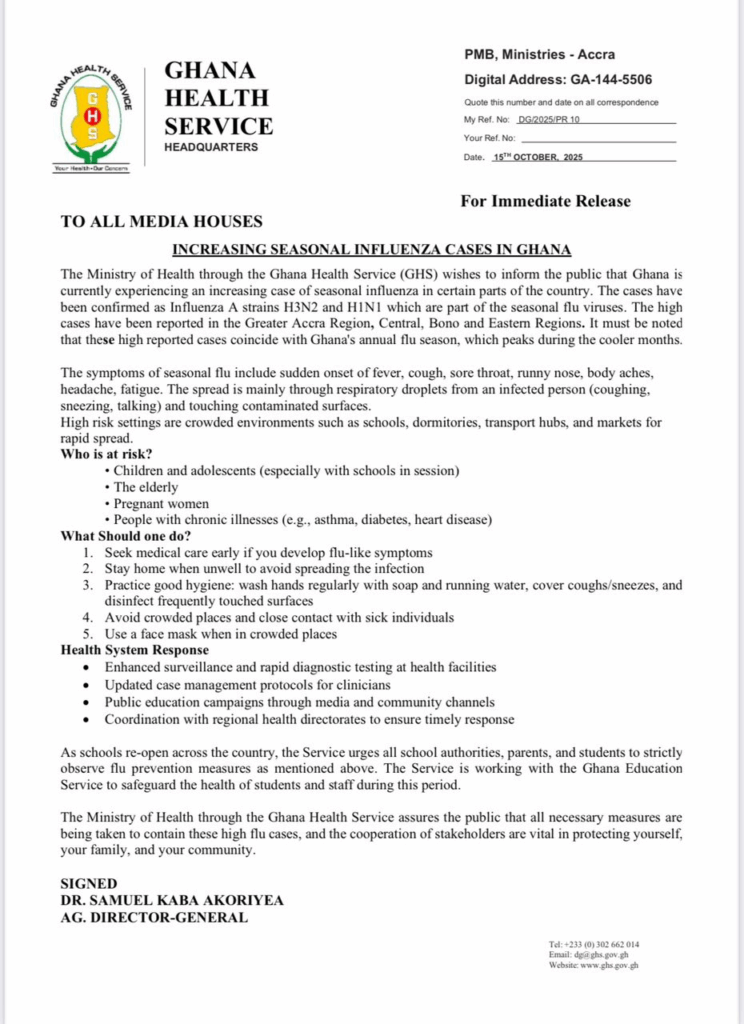The Ministry of Health, through the Ghana Health Service (GHS), has confirmed an increase in seasonal influenza cases across parts of the country.
According to the GHS, the cases have been identified as Influenza A strains H3N2 and H1N1, both common seasonal flu viruses.
The surge has been recorded mainly in the Greater Accra, Central, Bono, and Eastern Regions, coinciding with Ghana’s annual flu season, which peaks during the cooler months.
Symptoms include sudden fever, cough, sore throat, runny nose, body aches, headache, and fatigue.
The flu spreads primarily through respiratory droplets from infected individuals and contact with contaminated surfaces. Crowded environments such as schools, dormitories, markets, and transport hubs are considered high-risk settings.
The GHS has urged the public, particularly children, pregnant women, the elderly, and persons with chronic illnesses, to take preventive measures seriously. T
hese include seeking early medical attention, staying home when unwell, practicing regular handwashing, covering coughs and sneezes, disinfecting frequently touched surfaces, avoiding crowded places, and wearing face masks when necessary.
Health authorities have intensified surveillance and rapid testing across facilities, updated case management protocols, and launched public education campaigns.
The GHS is also collaborating with the Ghana Education Service to ensure preventive measures are enforced in schools as they reopen.
The Ministry assured the public that adequate steps are being taken to manage the situation and called for continued cooperation from all stakeholders to protect families and communities.



